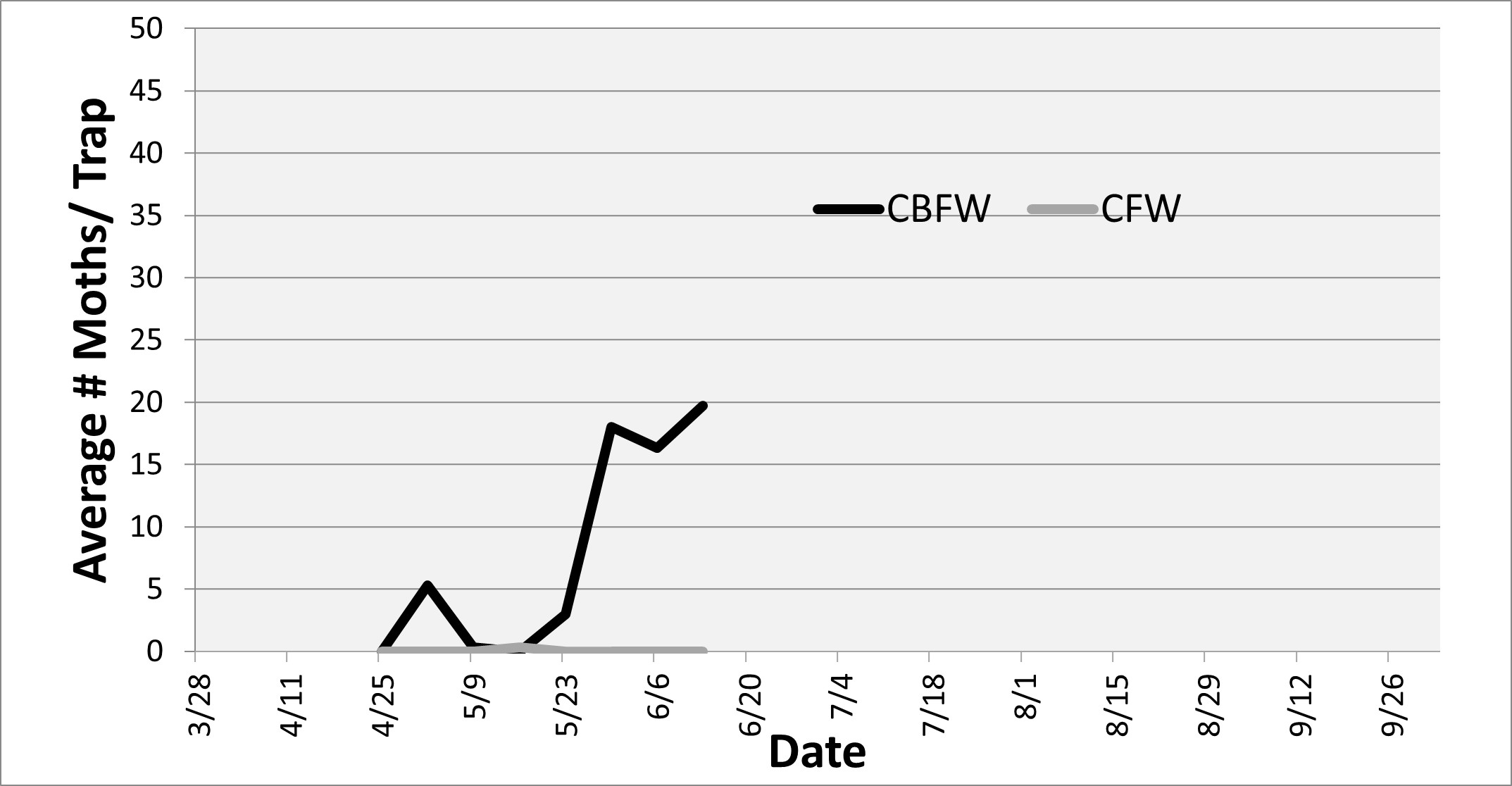West central Michigan small fruit update - June 14, 2022
Hot weather conditions will prevail for the next seven days making supplemental irrigation a need for blueberries and strawberries to maintain yield and fruit quality.

The summer season is finally here with temperatures reaching the mid-90s and with a high evapotranspiration index. That means that in some cases plants are losing more water via evapotranspiration than the water their roots can extract from the ground. In fruit crops like blueberries and strawberries, when these conditions happen during the green fruit stage their effect results in fruit abortions and extensive “June drop” or smaller fruits. Therefore, growers need to be prepared for providing supplemental irrigation to maintain yield and fruit quality.
For the past seven days there have been some substantial rains in west central Michigan. As of June 14, 2022, accumulated precipitation in the region during the past seven days varied from 1.6 to 2.4 inches of rain depending in the location. The highest amount of precipitation occurred in the Grand Junction area and the lowest at West Olive-Holland, Michigan, area. On the other hand, average daily minimum and maximum temperatures during the same period were 55 and 76 degrees Fahrenheit, respectively.
Major pest concerns include managing cranberry fruitworm (CBFW) and cherry fruitworm (CFW) in blueberries. The emergence of CFW finished and we are not finding new eggs in inspected blueberries. On the other hand, the CBFW population dynamics has continued with another large emergence of overwintering adults around the Fennville-Grand Junction area (Figure 1). We are finding newly laid eggs (Photo 1, large opaque egg) and egg-hatching will occur at the end of the week. Be ready to apply the second insecticide spray against fruitworms. Do not forget to remove pollinator bees from the field or cover them before spraying. Also, check the insecticide label to make sure the product you are spraying is bee safe.

Consult the 2022 Fruit Management Guide to find the best insecticides and recommended doses for fruitworm management. You may also consult your local Michigan State University Extension small fruit educator for recommendations and assistance with your IPM program.



 Print
Print Email
Email
